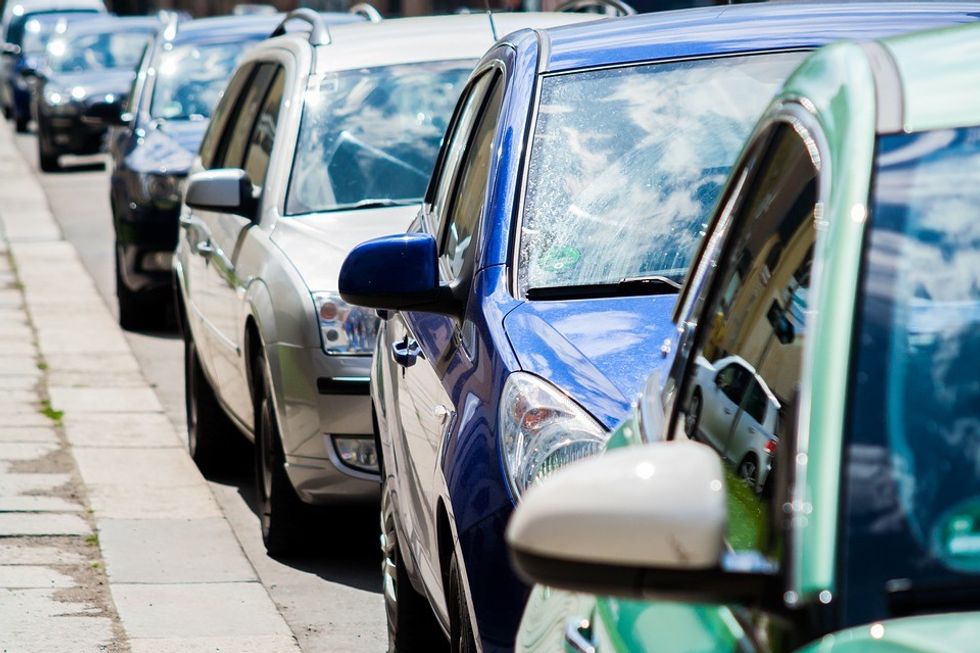In news that thrills no Toronto resident, the Toronto Transit Commission (TTC) announced yesterday that the 510 Spadina streetcar will be replaced with buses until the end of December, at least. In order to accommodate what the TTC says is critical track renewal and the modernization of the overhead power network, there will be no streetcars from Spadina Station to Queen’s Quay starting on Sunday, June 23.
This lengthy disruption will only add to Toronto’s maddening traffic woes at a time when the city is almost at its breaking point when it comes to congestion. And summer – along with its influx of tourists and a jam-packed Toronto event calendar – hasn’t even started yet.
According to the TTC (which recently averted a strike that would have paralyzed the city), work will include upgrading the overhead electrical system along the Spadina streetcar right-of-way between King St. and Queens Quay, and from College St. to Spadina Station. Track renewal work will take place at Spadina Station, along with enabling works for a future platform extension.
“The modernization of the overhead power network on Spadina Ave. is part of our commitment to ensuring a safe and reliable transit system for all TTC riders,” said TTC Chair Jamaal Myers in a press release. “While temporary bus replacements may cause inconvenience, dedicated TTC teams will be working hard to ensure the upgrades are finished on time or ahead of schedule by the end of this year. I am pleased that the TTC is actively engaging with customers, businesses, and residents to ensure everyone is aware of the temporary changes.”
These changes will see buses operating both ways on Spadina Ave. between Spadina Station and Queens Quay W., and serving curbside stops. Furthermore, there will be no 510 Spadina streetcar service operating to or from Union Station. Customers travelling to or from Union Station will be able to transfer between the replacement buses and 509 Harbourfront streetcars at Queens Quay W. Lastly, 509 Harbourfront streetcar service will be increased to provide frequent travel to and from Union Station.
“We are actively communicating these changes so that everyone is aware of what we doing and why these streetcar infrastructure upgrades on Spadina Ave. are necessary,” said TTC CEO Rick Leary. “This week, TTC staff are hosting pop-up sessions at Spadina Station to answer customer questions, and we have consulted with the Chinatown BIA and committed to ensuring that our work does not disrupt the upcoming Chinatown Festival in August. I want to express my gratitude to our customers and the local community for their patience and understanding as we complete these critical infrastructure improvements.”

The thing is, patience is more than wearing thin for Toronto drivers (and ride share users and GO bus riders). Thanks, in part, to never-ending construction on city roadways, Toronto’s traffic has gone from bad to worse – a lot worse.
In anecdotal conversations I’ve had with people who live outside of the city, the traffic is so bad, it’s deterred them from making their usual Toronto visits -- visits that would typically see them dropping many dollars at the city's establishments. While the messaging driven home by politicians and urban planners is to take transit, these individuals tell me that the GO train is so packed during peak hours that it’s more of a painful ride than anything else. In short, it's not worth the headache, they say.
Less than two months after Toronto’s infamously congested Gardiner Expressway was reduced to two lanes in both directions between Dufferin Street and Strachan Avenue for three years(!), Toronto city councillors approved a motion late last month that could speed up construction on the 60-year-old urban highway. A report released earlier this month revealed that traffic on the Gardiner in rush hour had increased commute times by 250%.
Meanwhile, major construction continues on countless streets through the downtown core. For example, King Street’s ongoing watermain and TTC track replacement has resulted in rolling closures along King West between Shaw and Dufferin that won’t end until September.
To be honest, it’s anxiety-inducing to even think about the months ahead when it comes to getting around town. While it’s understood that things like Toronto’s aging roadways (especially the deteriorating Gardiner Expressway) and TTC infrastructure is in need of repair, the whole “short-term pain for long-term gain” notion has countless Toronto residents saying that it shouldn’t hurt this much. The pain (the traffic that just keeps getting worse) has simply become unbearable.





















